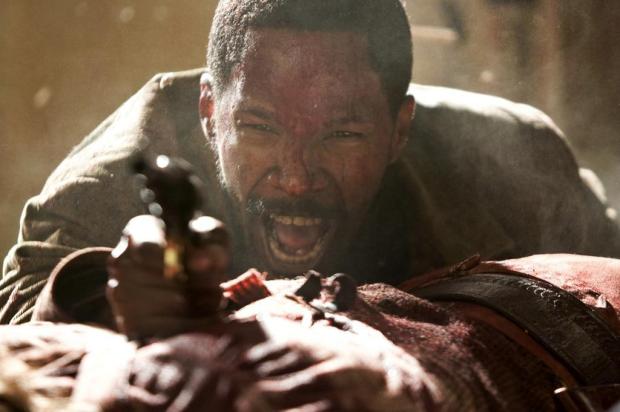Science fiction movies are among the hardest and most expensive films to make in Hollywood. You need a big budget and a lot of people working on it. But not if you're Kaleb Lechowski. The 22-year-old German who studies digital film design made his own animated Hollywood-style sci-fi short — and now he's headed to Hollywood.
Lechowski's film, titled R'ha, is a fully computer animated six-minute short that you won't believe was made by just one student. In R'ha, machines rebel against their rulers, an alien species, and force them out of their planet. The short starts with a robot interrogating one of the aliens after the Matrix-style insurrection. Perhaps R'ha's most original element is that there are no humans in sight. The story seems to be only about this alien race and their former servant robots who have turned on them.
Despite being the work of a student, R'ha is so good it's already attracted the attention of Hollywood executives. After seeing Lechowski's creation online, Scott Glassgold, of the managing company IAM Sports & Entertainment, was impressed. "His work is not only professional, it's extraordinary," Glassgold wrote Mashable in an email. "There are shots in there that look like they are from a 150-million-dollar movie." Glassgold has experience with science fiction, he sold the shorts Rosa and True Skin to studios last year.
Lechowski studies at the Berlin Mediadesign Hochschule. R'ha is his second big project at the school and his first animated 3D short. Lechowski told Mashable that he had the original idea for the story in the summer of 2011. Then, last semester, when he had to develop an animated 3D short for school, he decided he wanted to do a sci-fi video and use the idea he previously had developed.
Inspired mostly by movies like Matrix and videogames like Half-Life, Lechowski is a big sci-fi fan. He wanted to create a science fiction short because he likes the freedom that the genre allows. In sci-fi "you can create almost anything, like creatures, machines, you can create worlds, you can create basically everything," Lechowski told Mashable in a Skype interview.
In 2011 he wrote down his ideas and when he started his school project he scribbled down some more ideas, doing drawings of the creatures he wanted to animate, and then he simply started working on his computer. Lechowski says he actually prefers to improvise directly with the program he uses rather than do too many drawings with pen and paper. Apart from having an actor doing the voices, and receiving help with the sound, he did it all by himself.
Thanks to his impressive work, Lechowski is now headed to Hollywood. Glassgold, who acts as Lechowski's manager, got in touch with him and offered him a chance to pitch his short and his ideas as a full feature to movie producers. The manager thinks the movie has great potential, not only because of its technical excellence. "After speaking with him, the world and universe that he has in mind for R'ha is groundbreaking," the Glassgold wrote.
The German student will go to Hollywood in a few weeks to meet with executives and see if he can get the financing he needs to turn this into a movie. Lechowski and Glassgold declined to give more details about who they'll meet but Glassgold said they "are already fielding offers and interest for a feature."
Lechowski said he has some ideas on how to develop the movie, although obviously the rest ofR'ha's story isn't decided yet. What he needs now is some help so he doesn't have to keep doing everything on his own, although he jokingly says that could do that too — with a considerable amount of time on his hands.
"It's just a question of time, I think," he says. "If one would say I have 10 years of time to make a full feature out of it, I could do it my own, I guess. But that's not what I want to do."
This wouldn't be the first time that a short becomes a full-featured successful movie. That's what happened with the critically acclaimed District 9, which was adapted from the short Alive in Joburg.
Fonte: Mashable.com



